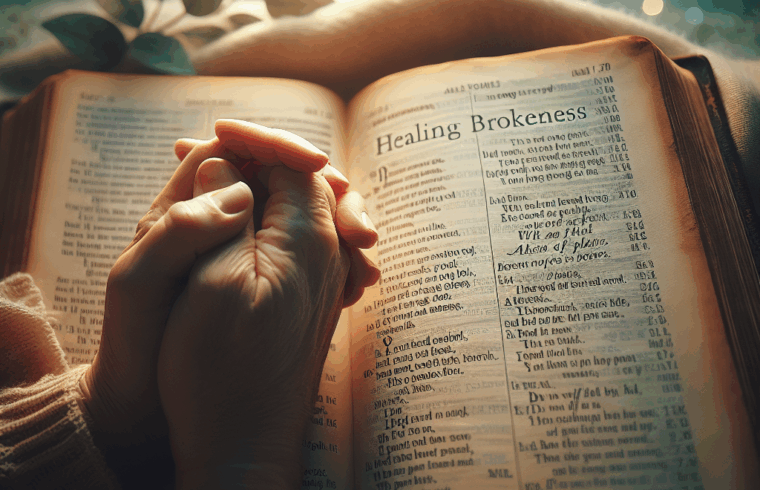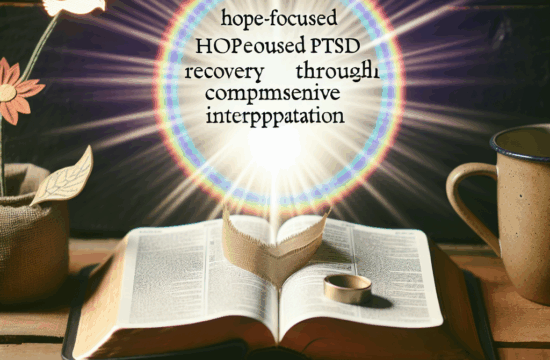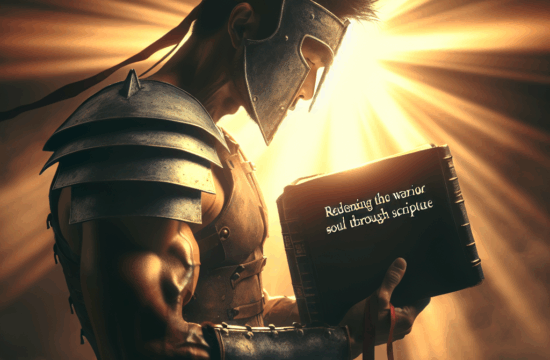==> Thank you for reading this post! Click Here If you are looking for support and Victory over PTSD.
Recognizing Our Brokenness
Embracing Vulnerability
Let’s be real: acknowledging our brokenness can be hard. It takes guts to stand in front of our fears, insecurities, and pain. I’ve been there, feeling overwhelmed by life’s circumstances, and let me tell you, it’s like standing on the edge of a cliff, unsure if you should jump or back away. The first step, though, is to own what we’re going through. It’s okay to admit that you’re hurting.
When I started to embrace my vulnerabilities, it felt freeing, like taking a deep breath after being underwater for too long. Sharing your struggles with close friends or family can lighten the load. You’d be amazed at how many people can relate and how sharing can pave the way for deeper connections.
Scripture reminds us of our imperfections, but it also shows us we’re not alone in our heartaches. Psalm 34:18 says that “the LORD is close to the brokenhearted and saves those who are crushed in spirit.” Reflecting on this helps me realize that brokenness isn’t a dead end; it’s a part of our journey.
Turning to Scripture for Healing
Finding Comfort in the Word
Ah, Scripture! It’s like a lifeline when you’re feeling lost in the wilderness of your thoughts. I’ve discovered that reading the Bible isn’t just about spiritual duty; it’s about feeding my soul, especially during tough times. My go-to verses are like old friends, comforting and wise, guiding me through the muck of life.
There’s something powerful about memorizing verses that speak to our pain, like Isaiah 41:10, which reassures us not to fear because God is with us. When I’m feeling anxious, recalling these words calms my restless heart and helps me re-center my thoughts.
Also, I love doing topical studies when I’m feeling broken. Finding verses related to healing and restoration can really uplift your spirit. It’s like building a playlist of hope that you can return to whenever you need a boost!
The Power of Prayer
Connecting with God
Prayer is my secret weapon during life’s dilemmas. It’s the time when I spill out my heart to God, and lemme tell ya, it’s downright refreshing! Turning my pain into prayer shifts my focus from my problems to the One who can help me navigate them. It’s like transforming a heavy backpack of worries into a light feather of hope.
I’ve learned that my prayers don’t have to be perfect or polished—they just need to be real. Even simple prayers like “Help me, God” are sincere and show my dependence on Him. You know, sometimes I get so bummed out thinking I have to pray a certain way, but really, God just wants our honest thoughts.
Joining with others in prayer amplifies the power of our petitions. I’ve experienced healing when praying with a group; the collective faith wraps around each of us like a comforting blanket. And if you’re not into group prayer yet, start small with a buddy—it can be a game changer!
Journaling as a Therapeutic Tool
Documenting the Journey
Journaling has become my personal therapy. Putting pen to paper—or fingers to keyboard—allows me to express feelings I sometimes can’t say out loud. It’s liberating to write down my thoughts and see them laid out before me. You know what? It helps me understand what’s going on in my heart and mind.
Get Support and Help with Recovery! Visit us for more Information and Support
Every time I jot down my prayers, worries, or insights, it feels like I’m having a heart-to-heart with my best friend. I often look back and find it fascinating to see how my thoughts evolve. Sometimes, I’ll even document the Scriptures that stood out to me, and the combination of prayer, Scripture, and reflection shows significant growth over time.
Plus, there’s this amazing sense of closure when I can pour out my heart onto the pages and then look to God for healing. It’s like a partnership; I show up with my mess, and He promises to bring peace. Oh, and don’t forget to celebrate the little victories you record—they’re all part of your healing journey!
Finding Community and Support
The Importance of Relationships
One of the biggest lessons I’ve learned is that I don’t have to go through brokenness alone. Communities—be it family, friends, or even church groups—are essential in the healing process. When I’m feeling low, spending time with people who uplift me can work wonders for my soul.
Honestly, I sometimes wish I could just curl up and hide away when life gets tough, but reaching out is where the magic happens. Sharing life’s burdens with others allows us to experience mutual encouragement, reminding each other we’re not walking this road solo.
Find a small group or a support network that resonates with you, where vulnerability is welcomed. I’ve found that hearing others’ testimonies in community makes my own struggles feel less heavy. When we bear one another’s burdens, the weight is shared and, oftentimes, lifted!
FAQ
1. What is the first step in healing brokenness?
The first step is recognizing and embracing your brokenness. Acknowledging it allows you to take action and seek healing.
2. How can Scripture help in healing?
Scripture provides comfort and wisdom. Finding verses that resonate with your pain can guide you and uplift your spirit during difficult times.
3. Why is prayer important in the healing process?
Prayer connects us to God, allowing us to express our feelings and seek guidance. It shifts our focus from our problems to God’s power and presence.
4. How does journaling aid in healing?
Journaling helps process emotions and track your healing journey. It’s a way to reflect on growth and document conversations with God.
5. How can community support healing?
A supportive community provides encouragement and shared experiences, reminding us that we’re not alone. It fosters connection, accountability, and shared prayer.













